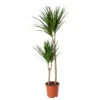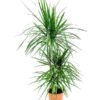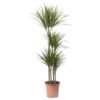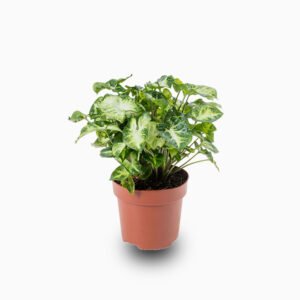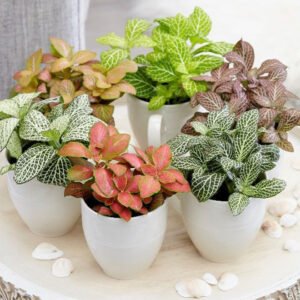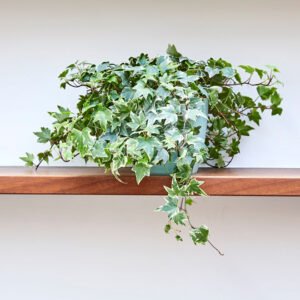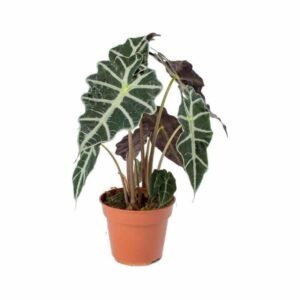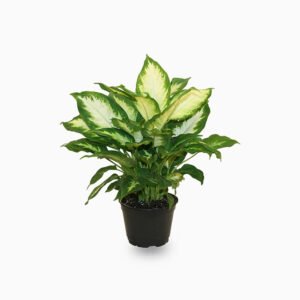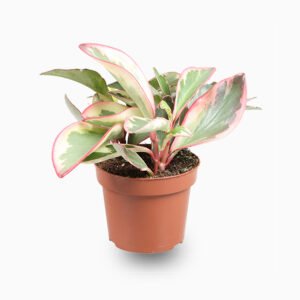| Description |
There are approximately 120 species of dracaena trees and shrubs. Whether your favorite is marginata, massangenana, fragrans, or possibly deremensis, each will give you a hefty return for very little maintenance. This genus of plants can grow quite large and are best kept under control by removing the top portion of the plant. New foliage will emerge from the cut area and you can even propagate the cutting! If you give this hearty indoor plant the proper light and amount of water, it will become a lovely, long-term resident in your home.Some dracaenas – like the D. fragrans and D. fassangeana – will grow in low light, but most other varieties – like marginatas – thrive in filtered, bright, indirect light. Direct sunlight can damage the leaves, unless the plant was originally grown in direct sun.Dracaenas have a reputation for not needing a lot of water. True, but they need a thorough soaking when the soil dries out! Remember — all plants need water! Dracaenas planted in a six-inch pot should be watered when the soil is dry four inches below the top. Use filtered water, rainwater, or distilled water, as these plants don’t like salts or minerals. Dracaenas prefer dry soil over constantly damp; soggy soil promotes fungus and root rot.Dracaena houseplants benefit from higher humidity levels during summer, or when they’re in heated, forced-air environments. Brown and brittle leaf tips are the tell-tale sign that your dracaena is suffering from humidity deficiency.It’s not necessary to fertilize your dracaenas, but they benefit from you feeding them once a month during the growing season with a ¼ diluted complete liquid fertilizer or fish emulsion. You can also top-dress the plant at the start of the growing season with a rich, organic compost scratched into the top few inches of the soil.Dracaeana marginata is slow-growing indoor plant, and it may take years to reach its mature indoor height depending on your interior environmental conditions. Dracaeana deremensis, and fragrans grow a bit faster, but will need optimal growing conditions and the proper care to reach maturity (this can take up to ten years!) |






